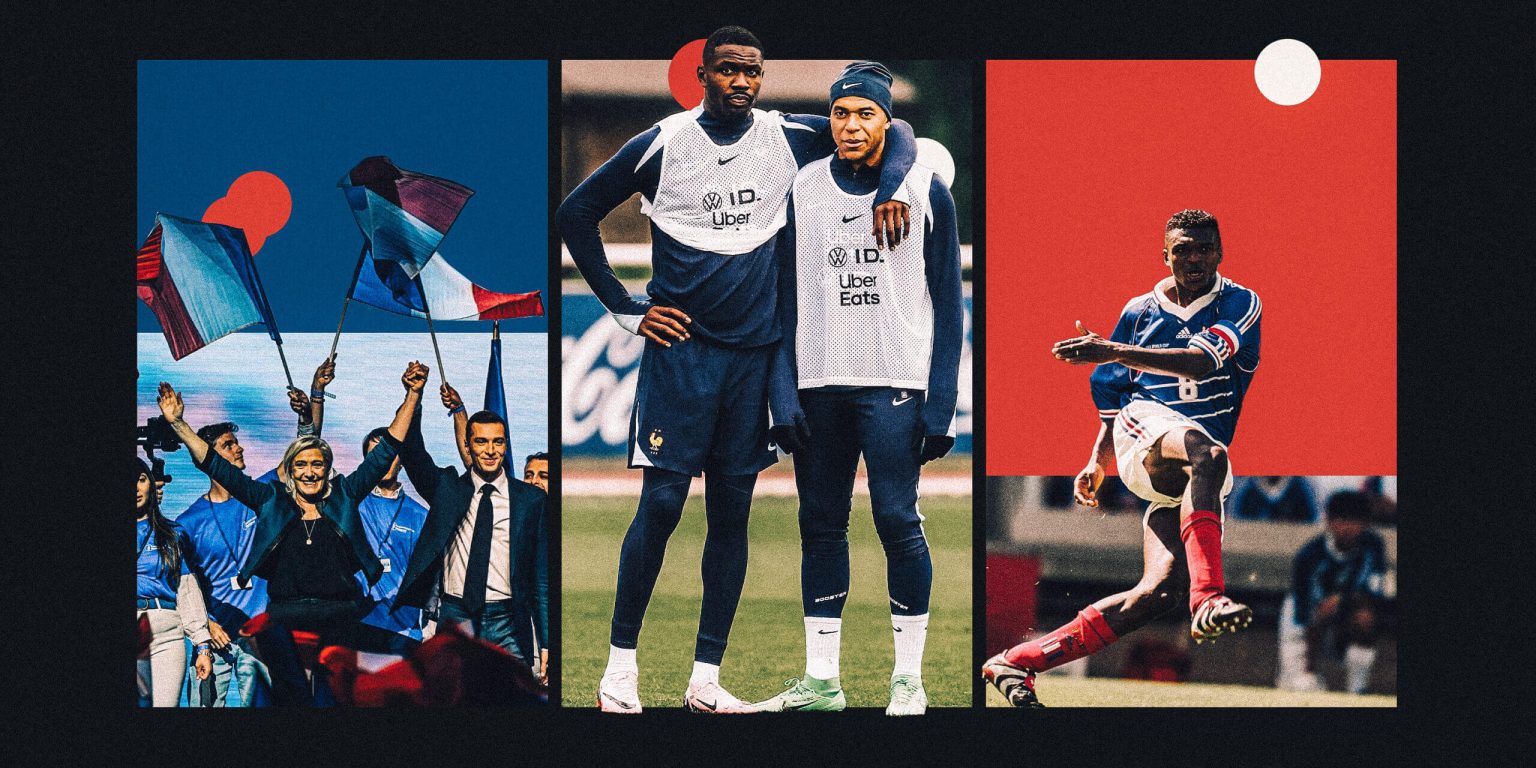The French Institute of Public Opinion (IFOP) published a poll showing a shift in support away from the far-right National Rally Party (RN) among voters aged 18-34 following statements from football players Kylian Mbappe and Marcus Thuram. Mbappe urged young people to vote and shape the country’s future, while Thuram explicitly called on the public to reject the RN. However, subsequent polls have shown the RN surging ahead again, causing concern among players on the French national team who fear the prospect of a far-right government coming to power.
The French national team has often reflected the multicultural society of France, with players from diverse backgrounds contributing to their success. However, this unity has been threatened by the rise of the far-right movement in France. In the past, political figures such as Jean-Marie Le Pen have criticized the team’s composition and questioned its authenticity as a representation of French identity. Despite the team’s success on the football field, tensions around race, immigration, and politics have persisted.
Recent statements from Mbappe and Thuram have reignited discussions around politics and the national team. While Mbappe’s call for unity and opposition to extremism has been met with criticism from far-right politicians, it has also sparked debate among fans and players. The French Football Federation has emphasized the importance of remaining politically neutral, but the intersection of sports, race, and politics in France continues to be a point of contention.
Mbappe’s background, growing up in the banlieue of Paris, adds weight to his statements about the importance of voting and rejecting extremism. Despite being a successful footballer, his origins reflect the struggles and diversity of many in France. The upcoming legislative election has been described as one of the most significant in France’s history, with the potential for the far-right to gain power. The players’ involvement in political discussions raises questions about their role in shaping the country’s future.
The relationship between football, race, and politics in France is complex and continues to evolve. The history of the national team as a symbol of multiculturalism has faced challenges from far-right movements and discriminatory practices within French football institutions. As the country navigates a pivotal election, the players’ voices and actions have the potential to impact public discourse and the outcome of the political landscape.
The actions and statements of players like Mbappe and Thuram highlight the intersection of sports, race, and politics in France. As the country grapples with the rise of far-right ideologies and the role of athletes in shaping public opinion, the national team finds itself at the center of a contentious debate. With the election looming, the team’s unity and diversity are being tested against the backdrop of a changing political landscape.


